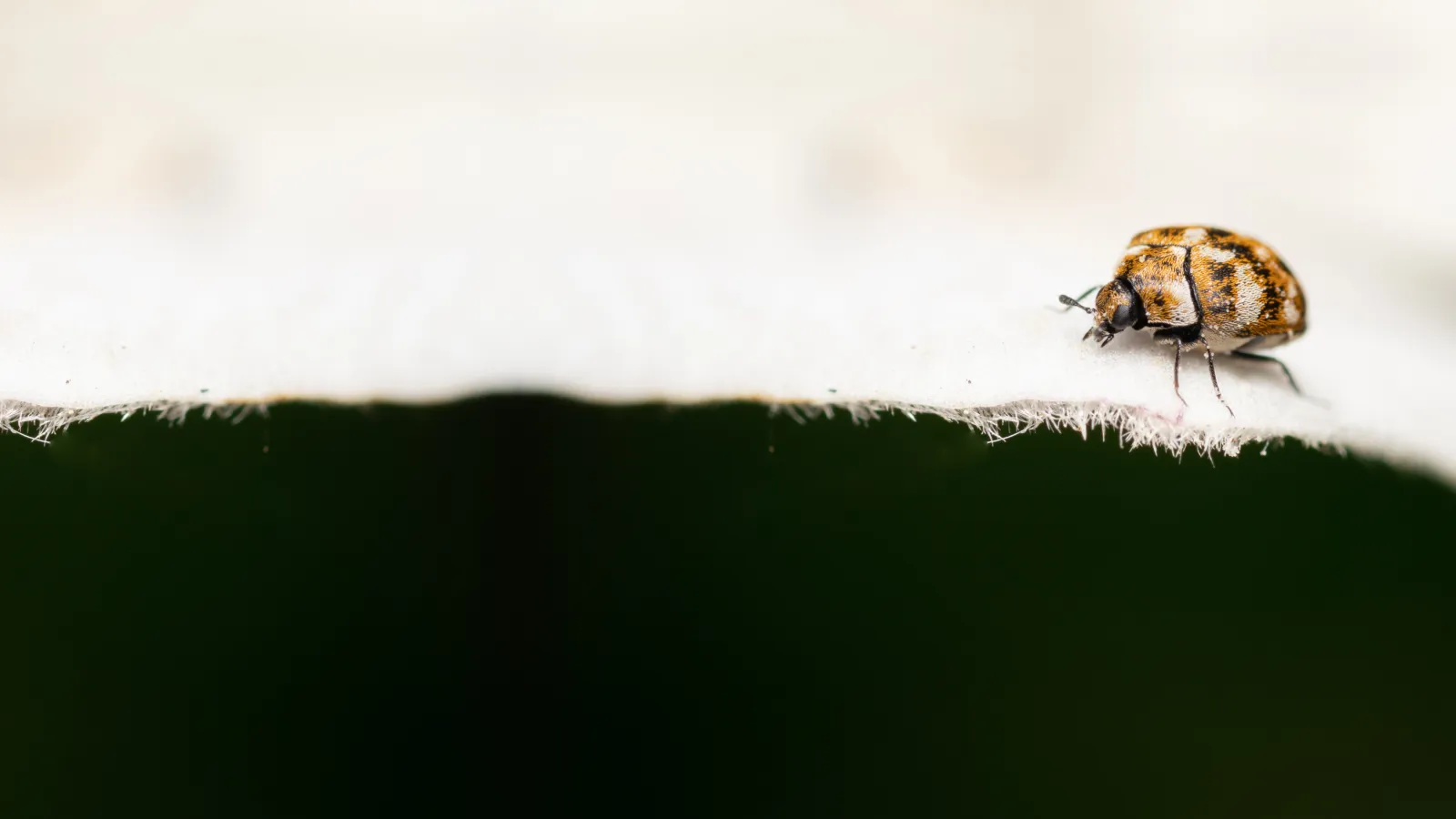
Carpet Beetles
Latin Name: Anthrenus verbasci
The carpet beetle is a small, oval-shaped insect commonly found in homes throughout the United States. You may see them in large groups on your window sills in the springtime. You may see more traces of them by the damage they cause to carpeting, clothing, and household upholstery.
Carpet beetles in the larval stages typically start small, between ⅛ to ¼ inch, and are densely covered with hair. Adult carpet beetles are also small but are flat and oval-shaped insects. Their color can vary in mottled patterns of white, brown, yellow, and orange.
Young carpet beetles earn the name of their breed. Mother beetles lay 5-100 carpet beetle eggs near accumulations of natural fibers, like carpets, piles of discarded fabrics, in the dark folds of undisturbed clothing, or even in clumps of hair stuck in baseboards. Once the eggs hatch the larval carpet beetles feed on the natural fibers of the surrounding materials. These young beetles are oval-shaped and dark in color.
Carpet beetles like to eat natural fibers of wool, fur, felt, silk, feathers, skins, and leather because they supply the young beetles with an animal protein called keratin. It provides vital nutrition for the larvae to transition from young to fully mature carpet beetles.
Synthetic materials are safe from carpet beetles unless they are blended with a natural fiber or are stained by food or other organic matter. Once beetles mature, they stop eating fibers and turn to plant pollen instead.
The size and shape of adult carpet beetles vs. bed bugs confuse many homeowners. They are both oval-shaped, small, and dark in color. The resemblance is convincing, but unlike bed bugs, the carpet beetle does not feed off of human blood. They'll just eat your carpets instead.
If an unattended accumulation of natural fibers is what causes carpet beetles, then you can prevent them by vigilantly monitoring your home. Dry clean clothing before you store them in closets, vacuum baseboards, sweep floors, and immediately dispose of infested items. Sealing the infested items in bags before discarding them helps to prevent the spread of the beetles.
If you suspect your house is infested by carpet beetles, contact one of our South Carolina and North Carolina exterminating professionals.
Similar Pests: Beetles, Powderpost Beetle